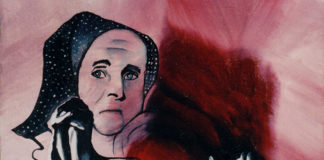Tag: women’s oppression
I Navigated the Mental Health System and Never Took Medications
I kept thinking, why was I the one to be labeled when my husband was doing all this unhealthy, violent stuff? I sought out doctors through health food stores and communities that didn’t believe in medications for a social and family problem. That way no controlling, pill-pushing medical doctor had authority over me.
Medical Symptoms That Medicine Can’t Hear
From Pacific Standard: Women's medical problems have long been dismissed as psychological by our healthcare system. In her new book Doing Harm: The Truth About How Bad...
#MeToo in Medicine: Women Harassed in Hospitals
From NBC: Although sexual harassment is widespread in the field of medicine, women face significant barriers to speaking out and reporting abuse. In light of...
The Female Subject in Psychiatry From Pathology to Prozac
In this piece for The New Inquiry, Sophie Putka chronicles the mental health profession's long history of pathologizing, diagnosing, and medicating women's emotions.
"With Freud’s claims...
How Psychology Undermines Feminist Activism
In this piece for the Feminist Current, Tove Happonen argues that the therapy model pathologizes women's responses to systemic injustice, aiming to change their emotional reactions...
The “It’s All in Your Head” Diagnosis Endangers Women’s Health
From Los Angeles Times: Many physicians are quick to dismiss women's serious health concerns as psychological issues, leading to the delay of proper treatment and...
Gender Wage Gap and Depression/Anxiety
When women receive less pay than men for the same work, they were about two and a half times more likely to "have major depressive disorder," and about four times more likely to "have generalized anxiety disorder" than their male counterparts. But when women were earning more than men, the odds were 1.2 and 1.5 respectively. The use of psychiatric terminology ("major depressive disorder" and "generalized anxiety disorder") constitutes something of a barrier to communication here, but the general message is clear: people (in this case women) who are routinely treated unfairly and discriminately are more likely to be depressed and anxious, than those not so treated.
“More Patients in Scotland Given Antidepressants”
The BBC reports that the number of people in Scotland taking antidepressants has increased by 5% in the past year with most of the patients being women and those in the poorest parts of the country. “We are now looking at the flabbergasting statistic of more than one in seven people in Scotland being prescribed antidepressants this year,” Conservative health spokesman Jackson Carlaw said. “We urgently have to look at better alternatives than simply parking people on medication in the hope things don't get any worse, with no aspiration for complete recovery."
Series on Anti-Psychiatry and Critical Theory for World Mental Health Day
To coincide with World Mental Health Day on October 10th, 2015, Verso Books, the largest independent and radical publishing house released a series of blogs on mental health and critical and antipsychiatry. The posts include pieces on R.D. Laing, colonialism, women’s oppression, delusions and art, “The Happiness Industry,” and social and institutional oppression.















